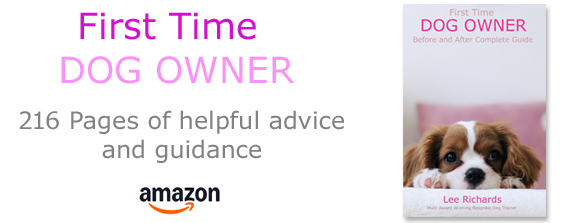As dog owners, we form deep and loving bonds with our furry friends.
However, it’s not uncommon for many dogs to experience anxiety, which can lead to excessive barking.
This behavior can be worrying for both the dog and the owner, as it often signifies underlying issues that need to be addressed.
In this article, we’ll explore the causes of dog anxiety, how it manifests through barking, and effective strategies for managing both.
What Causes Dog Anxiety?
Dog anxiety can stem from various factors, including genetics, previous experiences, and environmental influences.
Some common sources of anxiety in dogs include:
1. Separation Anxiety:
Many dogs experience anxiety when left alone.
This is particularly common in rescue dogs or those who have been re-homed, as they may fear abandonment.
2. Fear of Loud Noises:
Thunderstorms, fireworks, and other loud noises can trigger anxiety in many dogs.
The suddenness and unpredictability of these sounds can be frightening.
3. Change in Environment:
Moving to a new home, the introduction of new family members (human or pet), or changes in routine can cause stress and anxiety.
4. Lack of Socialization:
Dogs that haven’t been properly socialized may become anxious around other dogs or people, leading to defensive barking.
5. Medical Issues:
Sometimes underlying health issues can cause discontent and anxious behavior.
Always consult a veterinarian if you notice unusual behaviors, as pain or illness might be a factor.
How Anxiety Manifests in Barking
Barking is a natural form of communication for dogs, but excessive barking can be a symptom of anxiety.
Here are a few ways that anxiety can lead to increased barking:
Attention-Seeking:
An anxious dog may bark to get attention from you.
They may be seeking comfort or reassurance during stressful moments, such as when they are left alone.
Alert Barking:
If a dog feels insecure or threatened, they may bark to alert their owners to perceived dangers, which may not pose a real threat but still elicits a strong response.
Frustration:
Dogs may bark when they are frustrated or bored.
If a dog is anxious and unable to settle, they might express this through repetitive barking as a way of releasing pent-up energy.
Managing Dog Anxiety and Barking
Effective management of dog anxiety and barking involves understanding the root causes and addressing them through behavior modification techniques.
Here are some strategies to consider:
1. Training and Socialization:
Early socialization is crucial for puppies. Exposing them to various environments, people, and other animals can help reduce anxiety in adulthood.
Training sessions that reinforce calm behavior can also aid in managing barking.
2. Desensitization:
Gradually exposing your dog to the sources of their anxiety (like loud noises or being left alone) in a controlled way may help them become more comfortable with these triggers over time.
3. Creating a Safe Space:
Designate a cozy and secure area in your home for your dog.
Filled with their favorite toys and bedding, this space should be a sanctuary where they can retreat when anxiety arises.
4. Regular Exercise:
Physical activity is vital in reducing anxiety levels.
Daily walks, playtime, and mental stimulation can help expend excess energy, leading to a calmer demeanor.
5. Comfort Items:
Some dogs may benefit from anxiety-reducing products such as weighted blankets, calming chews, or pheromone diffusers.
These can create a more relaxed atmosphere and help soothe anxious behaviors.
6. Professional Help:
If anxiety and barking become overwhelming or if self-help methods fall short, consulting with a professional dog trainer or a veterinary behaviorist can provide targeted assistance and strategies.
Conclusion
Understanding and addressing dog anxiety is essential for the well-being of both pets and their owners.
By recognizing the signs and implementing effective management techniques, you can help your furry friend live a happier, more relaxed life while minimizing excessive barking.
Remember, patience and consistency are key — creating a calm environment takes time, but the bond you share with your dog will be worth the effort.
Together, you can navigate the challenges of anxiety, enriching your lives with more joyful moments.










